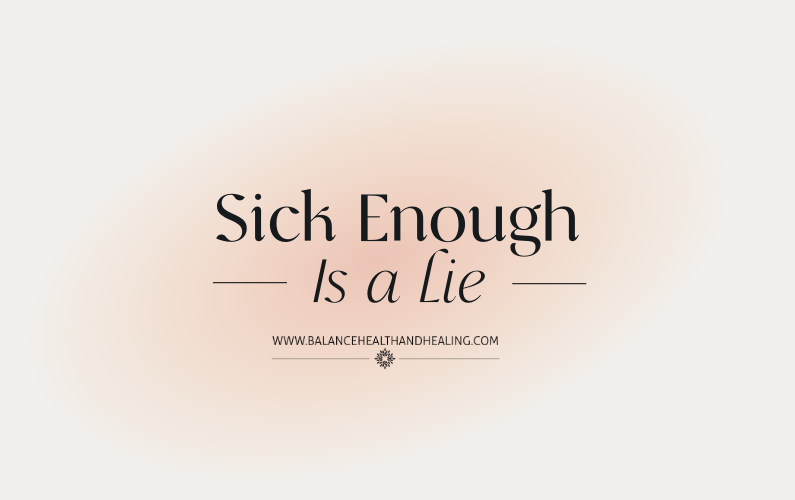
A different study focused on another alarming role doctors are playing in the treatment of eating disorders- people in larger bodies are reporting being largely overlooked by their providers, even being told they couldn’t have an eating disorder due to their size.** Even when eating concerns are causing significant health concerns and distress, the idea of someone in a larger body having an eating disorder is dismissed prematurely in evaluation. 
I hear anecdotal evidence of this all of the time in my office- oftentimes, concerns about eating have been downplayed by well-meaning healthcare providers. It can be hard to move forward in seeking treatment when you have been told your weight is “healthy” or that you don’t “look” like you have an eating disorder.
And yet, inner wisdom may still be pointing you towards seeking additional help, realizing the intrusive thoughts about your body and food can’t possibly be healthy and wondering how to even hope for some freedom from the distress it causes.
If this struggle sounds familiar to you- you have come to the right place! Working with providers who are trained and skilled at treating eating concerns can be an incredibly validating experience. Your body does not have to reach a “sick enough” status in order to be worthy of care. If you struggle with body or eating concerns, you are worthy of being taken seriously, heard, and helped.
Sources:
*https://onlinelibrary.wiley.com/doi/full/10.1111/j.1553-2712.2008.00100.x
**https://www.womenshealthmag.com/health/a32303881/atypical-anorexia/

